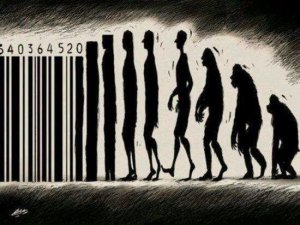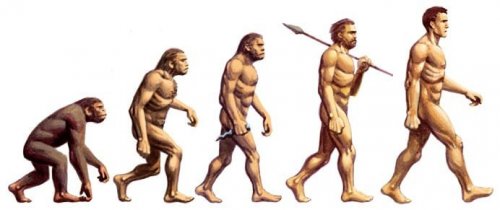Meta Dehumanization: What I Think about What They Think about Me


Written and verified by the psychologist Gema Sánchez Cuevas
To dehumanize means to deprive other people of positive human traits, personality, and dignity. In other words, it’s believing that someone is less human and more animal. Human beings dehumanize others and can also feel dehumanized themselves. The term for that is meta dehumanization. Thus, meta dehumanization means believing that other people dehumanize you. You’re aware that other people think you and/or the group you belong to fall in a category inferior to humans.
Meta dehumanization is a cognition, a belief. Experts call it “meta” because it means thinking about what others think of you. Meta dehumanization, then, consists of thinking that others believe you have more animal traits than human traits. This metacognition can make you feel more hostile towards those who you believe think badly of you.

Ways of Understanding Dehumanization
On a group level, you can understand dehumanization as a psychological process that strips others of their group identity. It places them outside of accepted moral ideas and highlights the incongruence of their values with yours. This process often leads to violence against the dehumanized group. Two models stand out in the theory of dehumanization: the infrahumanization model and the animalistic vs. mechanistic model.
The infrahumanization model posits that individuals deny emotions to the members of other groups, which puts them at the same level as animals. Those who dehumanize equate others with animals while maintaining their humanity. Usually, the dehumanizers deny other people the most human emotions (such as shame, joy, etc.) They allow primary emotions (such as fear) because they’re more primal and animal.
The other dehumanization model proposes two types of dehumanization: animalization and mechanization. Animalization means to deny the exclusively human traits that distinguish us from animals. That includes cognitive aptitude, refinement, and being “civilized”, among others.
Mechanization means to deny traits that are typical of human nature but not necessarily unique to the human race. These include warmth and emotion. In other words, if you deny someone that which makes them human, you likening them to an animal. If you deny someone their human nature, you’re likening them to inanimate objects such as robots or automatons.
Types of Dehumanization
Dehumanization can also happen in different ways. Just like prejudice, there’s subtle and explicit dehumanization. Subtle dehumanization denies some, but not all, traits. In other words, you think of the dehumanized group as neither fully human nor fully animal. Explicit dehumanization is when the members of a group are considered more animal than human. This is the most radical manifestation of dehumanization.
You can find one of the differences between these two forms of dehumanization in their consequences. Explicit dehumanization obviously has more negative consequences than its subtle counterpart. However, subtle forms of dehumanization are easier to accept, which makes them more difficult to eliminate. For example, comparing a person of color to a monkey might be unacceptable, but saying that people of color smell bad is easier to swallow.
“Eliminating ‘savages’ is less of a moral problem than eliminating human beings, and therefore American Indian came to be understood as a lesser race – uncivilized savages – thus providing a justification for the extermination of the peoples.”
-Michelle Alexander, The New Jim Crow: Mass Incarceration in the Age of Colorblindness–

Meta Dehumanization
What happens when you think that someone is dehumanizing you? Meta dehumanization often leads to dehumanization. In other words, if you believe that someone is dehumanizing you, you’ll probably end up adopting the same attitude. It’s a vicious cycle that doesn’t end there. Research shows that feeling dehumanized has to do with hostile reactions.
When we say hostile reactions, we mean aggressiveness, willingness to punish, and an unwillingness to share, among others. One example is what people think about immigrants. If you believe that a group of immigrants is dehumanizing you and your people, you’re more likely to support laws that prohibit them from entering your country. On a more extreme level, you could end up supporting violence and revenge.
In conclusion, when someone denies your humanity, you’re likely to deny theirs. This puts us all in a vicious cycle of meta dehumanization and mutual hostility that’s difficult to stop.
All cited sources were thoroughly reviewed by our team to ensure their quality, reliability, currency, and validity. The bibliography of this article was considered reliable and of academic or scientific accuracy.
Kteily, N., & Bruneau, E. (2017). Backlash: The politics and real-world consequences of minority group dehumanization. Personality and Social Psychology Bulletin, 43(1), 87–104. doi: 10.1177/0146167216675334
Kteily, N., Bruneau, E., Waytz, A., & Cotterill, S. (2015). The ascent of man: Theoretical and empirical evidence for blatant dehumanization. Journal of Personality and Social Psychology, 109(5), 901–931. doi: 10.1037/pspp0000048
This text is provided for informational purposes only and does not replace consultation with a professional. If in doubt, consult your specialist.








